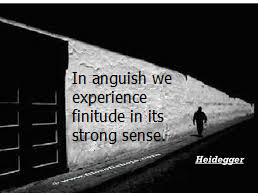
Arquivo para December 12th, 2018
Fear, anguish and change
The philosopher Martin Heidegger (1889-1976) invites those who live in fear, to live in impropriety, or a kind of aporia that means to think without assigning values and meaning, letting circumstances attribute it, it seems an alienation, but it is the alienation of the self.
in impropriety, or a kind of aporia that means to think without assigning values and meaning, letting circumstances attribute it, it seems an alienation, but it is the alienation of the self.
In a world that is always running, and I warn that this was already a reflection of Nietzsche and also Mario de Andrade’s Paulicéia Desvairada of the 1920s, and now the Monarchy of Fear, which is a reflection of Martha Nussbaum for the USA, but that serves to Brazil and others.
Nothing is more related to fear than Death, but it also arouses anguish, it would be to think about their relation to change, I would say none, unless the hypothesis that Heidegger throws us: impropriety, that is, we cease to attribute meaning and allow others to ascribe it, I would say that it is a resigned dialogic.
Heidegger also wrote that it is in anguish that we experience our fragility.
In it we find unexpectedly the change, where neither the anguish and the fear reach, beyond them therefore, where the hope and the “clearing” are born, lights on the forest.
So the fear exists because there is a real danger, and it means that something is changing, the anguish leads us to think about what is the change and the direction of it.
I suspect that the term impropriety used in the national translation for the word of Heidegger unangemessenheit may have another meaning, since angemessen can be translated as what is reasonable, so I would translate unreasonableness, that is, which is not in a sense as being reasonable, but that in the face of fear and anguish, they arise as having new horizons, from which changes that were previously unthinkable can emerge.
The German poet Hölderlin said that where there is fear there is salvation, it can be said nowadays in a broader way, that is, in science, in politics and because not in spirituality

